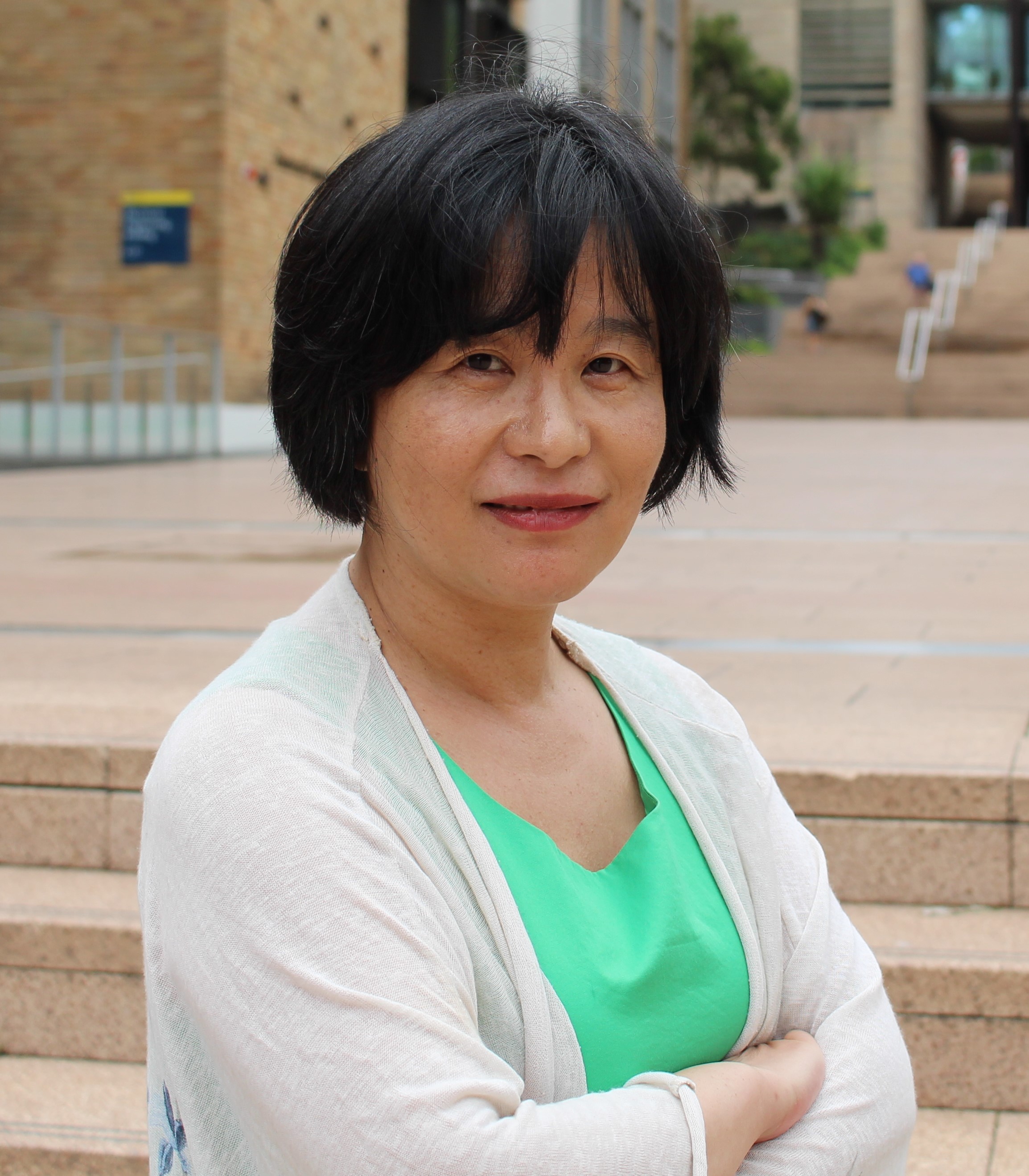
My Expertise
- Nanotechnology
- Targeted drug delivery & nanomedicine
- Nanosensor
- Integrating nanotechnology into education
Keywords
Fields of Research (FoR)
Chemical engineering, Electrochemistry, Nanochemistry, Nanofabrication, growth and self assembly, NanomanufacturingBiography
Professor Guangzhao Mao is an internationally recognised academic in the field of chemical engineering. She earned her Bachelor of Science (BSc) degree in chemistry from Nanjing University in China and completed her Doctor of Philosophy (PhD) in chemical engineering at the University of Minnesota in the United States. Professor Mao is professor and head of School of Engineering at the University of Edinburgh. She is an adjunct professor at...view more
Professor Guangzhao Mao is an internationally recognised academic in the field of chemical engineering. She earned her Bachelor of Science (BSc) degree in chemistry from Nanjing University in China and completed her Doctor of Philosophy (PhD) in chemical engineering at the University of Minnesota in the United States. Professor Mao is professor and head of School of Engineering at the University of Edinburgh. She is an adjunct professor at UNSW and served as its head of School of Chemical Engineering from February 2020 to September 2024.
Professor Mao's primary area of research revolves around nanotechnology, with a focus on cutting-edge projects in electrochemistry for the scaling up of nanosensors and the engineering of nanoparticles for precise drug delivery. Her innovative work in this domain has made a substantial impact on the field. Professor Mao is a Fellow of the American Institute of Chemical Engineers (AIChE), a testament to her significant influence within the profession. Professor Mao has received other prestigious awards including a Faculty CAREER Award from the U.S. National Science Foundation, a Fulbright Senior Scholarship, and an ELATE Fellowship. The latter facilitated intensive academic leadership training at the International Center for Executive Leadership in Academics. Professor Mao has had extensive collaborations with both international and industrial partners. She served as a visiting professor at the Max Planck Institute of Colloids and Interfaces in Germany, fostering global academic exchange. While working at UNSW, Mao served as Chief Investigator of several centres and hubs funded by the Australian Research Council (ARC).
My Grants
Australian Research Council (ARC) Discovery Project Scheme
US Air Force Research Office
ARC Hub in Connected Sensors for Health
ARC Industry Transformation Research Hub for Resilient and Intelligent Infrastructure Systems (RIIS)
ARC Centre of Excellence for Carbon Science and Innovation
Research Management Council and MS Australia
My Qualifications
B.Sc. in Chemistry, awarded in 1988 by Nanjing University, China
Ph.D. in Chemical Engineering, awarded in 1994 by University of Minnesota, USA
Postdoctoral Fellowship in Materials Science, 09/94‒07/95, University of Minnesota, USA
My Awards
Fellow of the American Institute of Chemical Engineers (AIChE)
ELATE Fellow, Drexel University
Fulbright Senior Scholar, Fulbright Program
Visiting Professor, Max Planck Institute of Colloids and Interfaces
Faculty CAREER Award, National Science Foundation
My Research Activities
Research Area 1: Targeted Drug Delivery Using Tracer Functionalised Nanoparticles
This project combines innovative nanotechnology with proven neurobiological principles to selectively transport drugs to targeted neurons for the treatment of neurological diseases and injuries. An example of our nano-medicine design consists of a retrograde transport protein chemically conjugated to a gold nanoparticle, which in turn is chemically conjugated to a small-molecule drug for the treatment of respiratory dysfunction associated with spinal cord injury. In a significant departure from current nano-medicine research, we employ neuroanatomical tract tracers for drug delivery to bypass the blood-brain barrier. Our ultimate goal is to translate basic nano-science discoveries into nano-medicine products.
Research Area 2: Precise Electrochemical Crystallisation for Nanowire Sensor Scale Up
We apply substrate-mediated nucleation and crystallisation principles toward scalable manufacturing of nanowire sensors for health and safety monitoring. We explore simple, low-cost electrochemical crystallisation for the precise deposition of charge-transfer complex nanowires directly on electronic sensor substrates. The nanowire assemblies and arrays detect gases of interest by electrochemical methods. We aim to provide fundamental understanding of seed-mediated crystallisation, a widely used but poorly understood industrial separation and purification process, for precise nano-materials deposition. We collaborate with industrial partners to integrate our nano-sensor manufacturing technology with MEMS devices.
My Research Supervision
Areas of supervision
- Targeted drug delivery and nano-medicine
- Nano-materials synthesis and characterisation
- Molecular nucleation and crystallisation
- Electrochemistry at the nanoscale
- Nanosensors
Currently supervising
Mahroo Baharfar (postdoctoral research fellow)
Mohamed Kilani (postdoctoral research fellow)
Wenqian Wang (postdoctoral research fellow)
Joel Yong (postdoctoral research fellow)
Ren Wang (postdoctoral research fellow)
Siddulu Naidu Talapaneni (postdoctoral research fellow)
Jiancheng (Ivan) Lin (PhD student)
Sk Al Zaheri Mahmud (PhD student)
Mohammad Nasri (PhD student)
Joint-/co-supervised PhD students and postdoctoral research fellows (not listed)
My Teaching
CEIC3007